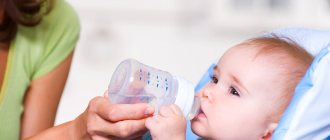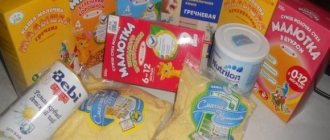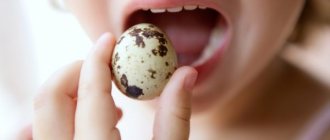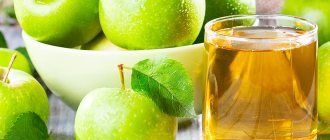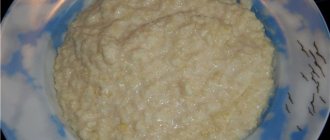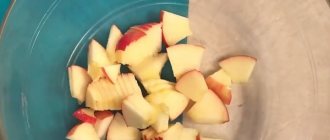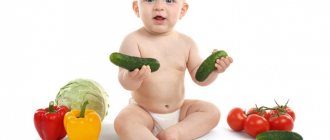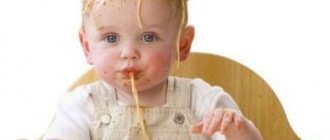What kind of water to give to children from the first days of life: useful tips
19.07.2017
What kind of water to give to children from the first days of life: useful tips
Now the problem of the quality of drinking water, its purity and harmlessness is very acute for each of us. Choosing the right water purification product is a task that must be solved to maintain and strengthen the health of all family members. To a greater extent, the problem of drinking water safety affects the younger generation. For a fragile child's body, the quality of water is of great importance. What kind of water should I give to children? You will find the answer to this important question in our article.
From this article you will learn:
- Do newborns need to be fed?
- What kind of water should be given to babies under one year old?
- What water is suitable for children after one year?
- Why is it useful to have a water filter at home?
To give or not to give: two points of view on one question
Some experts believe that babies receiving formula and breast milk do not need water. After all, breast milk already consists of 90% water, and in addition, during the preparation process, mothers dilute the artificial formula with a sufficient amount of liquid. On the other hand, many pediatricians believe that all babies should be offered water, regardless of what type of feeding they are on, explaining this as a means of preventing increased intracranial pressure, dehydration and constipation. Some pediatricians have concluded that babies may confuse hunger with thirst. And if, instead of satisfying it, the child is fed only breast milk or formula by feeding him on demand, you can provoke the appearance of excess body weight. There is a way out of this situation. If, after feeding a standard portion, after a while the child begins to become restless and capricious, as if he wants to eat again, you can offer him some water. In most cases, he will calm down quickly after this. However, parents need to know that water is given only after a meal (about 40 minutes), and not before it, since in this case the child may experience a feeling of false satiety.
Up to contents
When to give water to a breastfeeding newborn?
Infants under 3 months of age should be supplemented only on the recommendation of a pediatrician. Older babies can be given water without fear that they will refuse the breast. If a child drinks water with pleasure, do not deprive him of drinking. Dehydration is very dangerous; it is important for parents to remember the rapid metabolism of a newborn and significant loss of moisture.
It is better to start feeding infants at the age of 4 months and older. It is recommended to do this between breastfeedings. The amount of water consumed per day is individual for each child, but pediatricians advise not to give infants more than 100 ml of liquid per 1 kg of body weight per day. This includes mother's milk, so water accounts for 30 to 70 ml, depending on the baby's needs.
You can feed your baby either from a bottle or with a spoon. The second option is preferable, since it will subsequently soften the process of introducing complementary foods; the baby will remember what this cutlery is and what it is needed for. Do not forget that newborns still have a very small stomach volume, so you do not need to give a lot of water at a time. At first, 2-3 teaspoons will be enough.
The need for fluid in some cases increases significantly. For example, too dry air in the room or overheating leads to a lack of moisture. In hot weather, children also lose a lot of moisture and need to drink.
- rare urination;
- dry mucous membranes, skin, tongue;
- retraction of the fontanel.
Doctors recommend giving water for colds and other diseases that are accompanied by an increase in body temperature. Often water helps if a little person hiccups.
Is it possible to give water to newborns? What do leading experts say?
The famous pediatrician E.O. Komarovsky claims that babies should not be forced to drink water if they do not want to. However, parents should periodically offer the child something to drink, since at this age he cannot yet show that he is thirsty. Mom and dad, when with the child, should always have with them a clean bottle of special drinking water for children from birth.
Komarovsky notes that if there is a shortage of mother's milk, this is a contraindication to supplementing with water. The female body adapts to the needs of the child, and if he becomes less likely to breastfeed, the milk may disappear altogether.
Evgeniy Olegovich draws attention to what kind of water can be given to newborns. Boiled water is “dead”, animals do not drink it, it has nothing in common with natural drinking. The doctor does not see anything wrong with consuming compote, uzvar, jelly, fruit juice, if these products are appropriate for the child’s age and are not contraindicated due to allergies and other possible pathologies.
Pediatrician Irina Vostrikova claims that newborns do not need supplemental feeding if a nursing woman receives enough fluids daily and drinks at least 2 liters of clean water per day. At the same time, in hot weather, between feedings, the baby can be given 10-15 ml of water, but only if he does not refuse it. It is advisable not to exceed the daily norm of 150-200 ml of water, otherwise the load on the gastrointestinal tract may increase significantly. Sometimes water can be given at night, this applies to those cases when the baby wakes up and cries, and the parents are sure that he is not hungry.
In what cases should you not give water to newborns while breastfeeding?
The main rule that young parents should adhere to is not to give the baby water if he does not ask for it and does not want it, and also in the absence of symptoms of dehydration. During the first three months of life, a newborn does not need supplemental feeding at all. If the mother feels that the child is thirsty, it is enough to give him the breast. Milk will help replenish fluid loss, and the baby will drink exactly as much as he needs.
There is also no need to give additional water if the baby is malnourished. After drinking some water, he may have a false feeling of fullness, and he will stop “fighting” for milk in his mother’s breast.
Excessive amounts of water can lead to diarrhea. If the liquid is not sufficiently purified and filtered, an infection may enter the child’s body, resulting in serious diseases that are very difficult to combat in infancy.
- boiled from the tap (boiling does not kill all bacteria, and such liquid contains chloride compounds that are dangerous for babies);
- from open sources (possibly containing nitrates, harmful bacteria and other components dangerous to children);
- mineral and carbonated;
- from ordinary household filter jugs, intended for adults;
- if the factory bottle does not have the appropriate marking stating that it is intended for children, indicating the age of the child;
- if more than a day has passed since the baby water was opened, and it was stored outside the refrigerator;
- from unknown manufacturers, purchased in suspicious places of sale, with the integrity of the container damaged, expired.
A little person needs water from birth. If the baby is breastfed, during the first months of life he receives a sufficient amount of fluid from mother's milk. However, there are situations when it is still necessary to supplement a newborn's diet. Before giving your baby water, you should definitely consult your pediatrician.
expert author: Andrey Gennadievich Smirnenko,
pediatrician, candidate of medical sciences, homeopath
What do you think about when you can give water to a newborn, dear readers? Write your thoughts and opinions in the comments!
Mother's milk is the ideal nutrition for a baby. It contains a huge amount of nutrients necessary for the full growth and development of infants. But on warm, hot days, parents often wonder if it is possible to give extra food to their newborn.
Pediatricians have divided opinions on this matter - some are absolutely sure that there is no need to give the child water, others are convinced that a newborn needs water. Therefore, when deciding at what age and when you can start giving your child water, you need to take into account the opinions of both opponents and supporters of giving your baby extra water.
When should you give water?
There are a number of situations when giving water to your baby is simply necessary.
- At elevated body temperature
. It can be caused by various reasons: exposure to the open sun, an illness that causes fever, etc. To prevent dehydration, the child needs to be offered water. In this case, breast milk and artificial formula will not be able to completely replenish fluid loss. - For diarrhea or vomiting.
These conditions also cause dehydration. In addition, a sick child may lose appetite and refuse to eat. In this case, the newborn or older child must be given water to drink.
Up to contents
Is it permissible to supplement infants?
The drinking regime of infants has its own characteristics associated with the method of feeding and the general condition of the body with not yet formed immunity. Therefore, the question of the need and rules for supplementary feeding in infancy worries all parents.
When can you give water to a newborn? Up to 4-6 months, the main food and drink for the baby is mother's milk, which ideally satisfies all his needs.
It is very important to properly organize feeding in the first weeks of life, because milk, rich in nutrients and calories, can fully provide the baby’s body with everything necessary, maintain the balance of microflora, and build immunity.
Since the majority of breast milk is water, a healthy baby who drinks it receives all the liquid it needs in full. In addition, there is no need to dilute the already quite liquid basic nutrition. Therefore, pediatricians do not recommend giving a child water until the age of 4 months, until the stomach is sufficiently strong.
The digestive tract, which is overflowing with fluid and has not yet fully formed, will find it difficult to cope with the increased load. Excess water will not bring any benefit to the body and may have undesirable consequences for the child’s health:
- filling the space intended for milk, and therefore lacking the necessary calories and nutrients;
- difficulty in the functioning of the baby’s immature kidneys and the removal of useful substances from mother’s milk;
- an increase in bilirubin in the blood, leading to infant jaundice;
- risk of dysbacteriosis and water intoxication.
If you offer your baby water instead of the breast, as many do, for example, at night, then the mother’s lactation may be disrupted and, to avoid this, she will have to spend a lot of time and extra effort expressing milk, when there is no need for this.
In addition, a child who is accustomed to taking liquid from the nipple can relax and eventually refuse the breast: after all, such sucking does not require much effort.
Some parents are misled by the greed with which the baby clings to the offered bottle and drinks all the liquid. This behavior is not explained by thirst, but by the developed sucking reflex, which all infants are distinguished by, especially if they are hungry.
On the other hand, a lack of water is no less dangerous for a baby than its excess: increased metabolism and increased physical activity require regular fluid replenishment. That is why only a pediatrician can answer whether it is possible to give water to a newborn and how to maintain normal water balance.
How to give your baby water
Most mothers prefer to give water from a bottle. But it happens that the baby does not suck it very well. Of course, you shouldn’t force your baby to drink, but if there is a serious threat of dehydration, it is still necessary to replenish the volume of lost fluid. Then you can try giving water from a spoon or making an unsaturated compote from dried fruits (apples and prunes), which will not only be tasty, but also healthy. The main thing is not to add sugar or syrup to it. In addition, this drink has a mild laxative effect, so it is especially useful for constipation.
Up to contents
Should you give your child something to drink after active play in the heat?
This must be done, and not only after, but also during active games in the sun or in hot weather, since with sweating water is removed from the body in significant quantities. Offer your baby water as often as possible. For a walk, it is more convenient to take special “baby” water in a bottle; it has a small volume, but sufficient even for a two- or three-hour walk.
Tap water
It’s not bad if your house has a direct water purification filter and you can get good water straight from the tap. Otherwise, you should get a filter with high-quality cassettes against hard water. This way you can be sure that the water is sufficiently purified from heavy impurities.
If you have the opportunity to purchase bottles of baby water, it is not recommended to use tap water, as well as spring water or self-collected water from other natural sources. In this case, it is impossible to guarantee high quality water and its safety for the baby’s health, even with prolonged boiling.
Baby water for formula preparation must have information on the label about the production date and recommended expiration date.
How to tell if your baby is thirsty
Sometimes the baby needs extra fluid. For example, for diseases accompanied by high fever. Fluid deficiency causes severe dehydration and exhaustion. To understand that your baby needs additional drinking, you need to objectively assess his behavior. If the child refuses to drink, add a little sugar to the water.
The following signs indicate a water-electrolyte imbalance:
- total weight gain per month is less than 500 grams;
- the number of urinations per day is less than 10–12 times;
- moodiness;
- lethargy;
- the baby rarely blinks;
- pale skin;
- dryness and flaking of the skin;
- dry tongue;
- rare urination;
- urine becomes dark in color with a pungent odor;
- constipation;
- hiccups;
- restlessness at night;
- dryness of the nasal mucosa and eyes;
- retraction of the fontanel.
Children's water "FrutoNyanya" - from the first days of life!
Children's water "FrutoNyanya" is water of the highest category. Does not require boiling. The water is carefully balanced in mineral composition and is suitable even for the smallest children.
Special children's water "FrutoNyanya" is available in 0.33l, 1.5l and 5l formats
Choose the most optimal format for you. A 0.33 liter bottle is ideal for a walk. And for home use: preparing porridge, mixtures and for pouring into a children's sippy cup, water in 1.5 liter bottles will be convenient. A 5 liter canister is an excellent option for a large family or for taking the required amount of water with you to the dacha.
Water quality control is carried out at all stages of the technological process of its production in an accredited testing facility. Testing center employees take water samples at each stage of its production.
When extracting water from a well, the water treatment stage, be it purification from mechanical impurities, the stage of normalizing the composition of water in terms of the content of macro- and microelements, the ozonation process or final filtration. Also, samples are necessarily taken when water is poured into containers and packaged.
All samples undergo mandatory testing for compliance with requirements and standards. Product quality control is a continuous round-the-clock process in our center. If at least one discrepancy is detected, the batch is not allowed to be sold.
Pros and cons of giving baby fluids
Water for a newborn can be both beneficial and harmful. Its advantages for babies are as follows:
Preventing dehydration of the child's body in the heat.- Removing bacteria and viruses from the baby's body.
- Calming a child under stress.
- Elimination of dry mouth and eyes in a newborn.
- Accelerated dissolution of drugs in the body and their rapid absorption.
Drinking can harm the baby's body. Its disadvantages are:
- Heavy load on the kidneys.
- High risk of developing dysbacteriosis.
- Provoking malnutrition.
- Rapid refusal of the baby from healthy mother's milk.
In the latter case, the newborn gets used to the nipple and stops sucking on the mother's breast. As a result, the mother's milk production decreases. The baby has to be switched to less healthy dry formulas.
Which type of mug or bottle should I choose depending on my age?
Parents will have to choose between different types of cups and bottles depending on the age of the child.
- Around six months: At this ideal age, use a cup with handles and a straw or soft spout to introduce water. You should also choose a blocking valve that can be removed;
- around 12 months: this is the age when you need to help your baby learn to drink from cups. If the baby is already drinking from a spout or straw, it is easier for him to switch to a cup. You can use a sports cup or an open cup.
